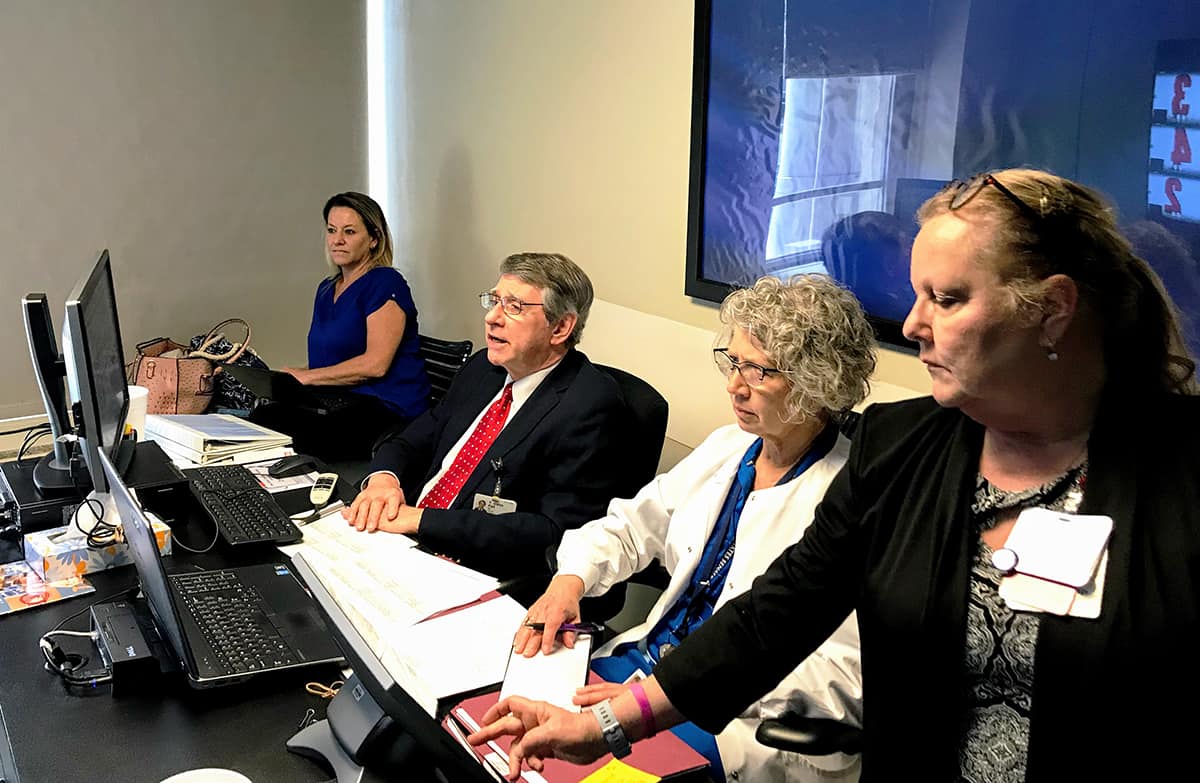UAMS Starts Digital Health Program to Help Spine Patients Statewide
| The University of Arkansas for Medical Sciences (UAMS) has begun a digital health spine clinic to allow patients across Arkansas with spinal disorders, spinal cord tumors, and patients who have recently undergone surgery to go to the location closest to home without having to travel to Little Rock to see a specialist.
The UAMS Institute for Digital Health & Innovation and the UAMS Jackson T. Stephens Spine & Neurosciences Institute held the first digital spine clinic consultations in Arkansas in April with T. Glenn Pait, M.D., a professor in the College of Medicine’s Department of Neurosurgery and Department of Orthopaedic Surgery and director of the Spine Institute.
Digital health is delivering health care through technology such as smart phones, interactive live video, wearable devices and personal computers. It reduces the cost of health care and improves access for patients, especially in a rural environment like the state of Arkansas.
The clinics are being held through a live video and data connection at UAMS Regional Campuses around the state.
“The goal of the clinic is to help eliminate long distance travel for our patients,” Pait said. “The clinic can work with patients before surgery, follow-up visits after surgery, and other therapies that can assist with their spinal conditions.”
The digital clinic allows timelier and easier access to high-quality specialty spine care. The digital health visit helps identify factors responsible for the patient’s pain, as well as, factors that will interfere with recovery, if surgery is needed. The appointment will help to confirm a diagnosis, and patients can ask questions about their diagnosis and treatment options
Pait has trained the nursing staff at the regional campuses how to conduct neurological and spinal examinations under the direction of the physician and to assess the patient’s condition. Pait reviews and discusses the patient’s medical records, radiological studies, imaging and other information with the patient.
Marcia Byers, Ph.D., RN, director of clinical innovation and research for UAMS Regional Campuses, said it’s important to care for patients where they live and make sure they are getting the best possible care they can.
“This is the first of many digital health programs to come that will help ensure better outcomes for our patients,” Byers said.
The initial clinic was at UAMS regional campuses in Fort Smith, Jonesboro and Texarkana with a total of six patients seen from the three locations. The goal is for all eight UAMS Regional Campuses to see two patients a day for a total of 32 patient visits per month.
“It’s about providing care to the people of Arkansas one patient at a time, where they live,” said Terri Imus, RN, of the Institute for Digital Health & Innovation. “This is why we do digital health clinics, we’re giving people access to care that they otherwise would not have unless they come to the Little Rock Campus.”
Patients are scheduled by their primary care providers through the referral process, just as they are now.
“The patients are also given requirements before surgery for therapies to assist in their recovery and improve surgical outcomes via digital health with the assistance of our staff at the patient site.” Pait said. “This health service will be of community benefit by allowing a broader level of specialty spine care.”
